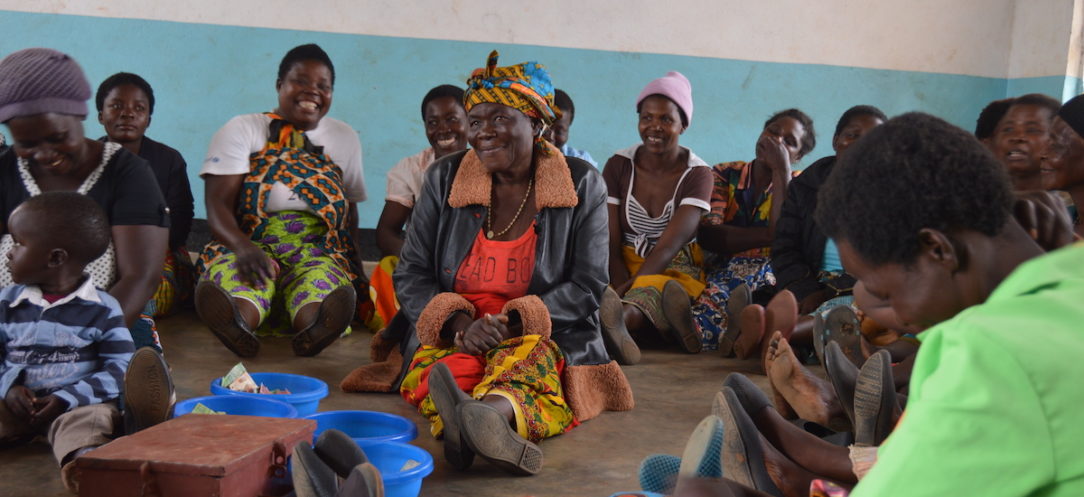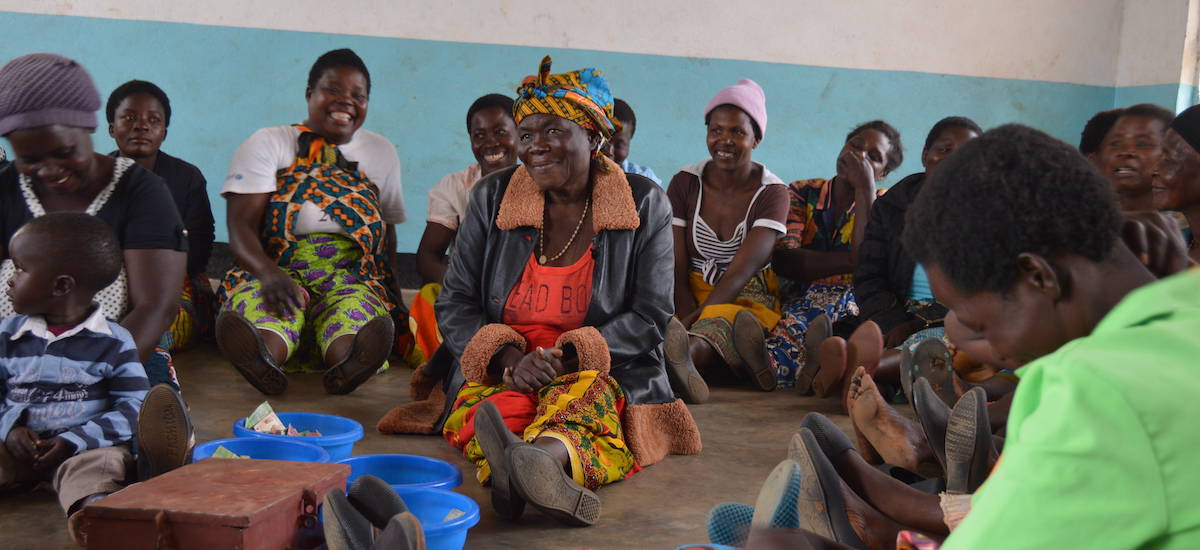
BLOG & STORIES
“Women making decisions is a basic foundation and important indicator of women’s empowerment”
To celebrate International Women’s Day, this month we asked some of our partners about our work with women in communities across Southern and Eastern Africa.
Working together with our in-country partners in Kenya, Malawi, Tanzania, Uganda and Zimbabwe, we are helping women without access to formal financial services to manage and improve their economic status and family’s futures. By ensuring they are always part of the volunteer groups who run our programmes, and providing skills and leadership training, we are also supporting them to become decision-makers and leaders in their homes and communities.
Following International Women’s Day on the 8th March, we asked a few of our partners’ fantastic project team members about the importance of working with women and challenging gender inequality. Let us introduce them…
- Memory Matimati (pictured far left on the right) is Project Coordinator at Simukai, our partner in Mutare, eastern Zimbabwe.
- Mwaka Said is Programme Manager and Kidawa Mohammed is Assistant Manager at ZACA, our partner in Zanzibar, Tanzania.
- Naomi Muando (pictured middle left) is Regional Manager at ACET Mbale, our partner in Mbale, eastern Uganda.
- Pauline Thogo (pictured middle right) is Caritas Director at CDN, our partner in Nakuru, south-west Kenya.
- Richard Kapanda (pictured far right) is Youth and Children’s Director at MPC Nkhoma, our partner in Salima, central Malawi.
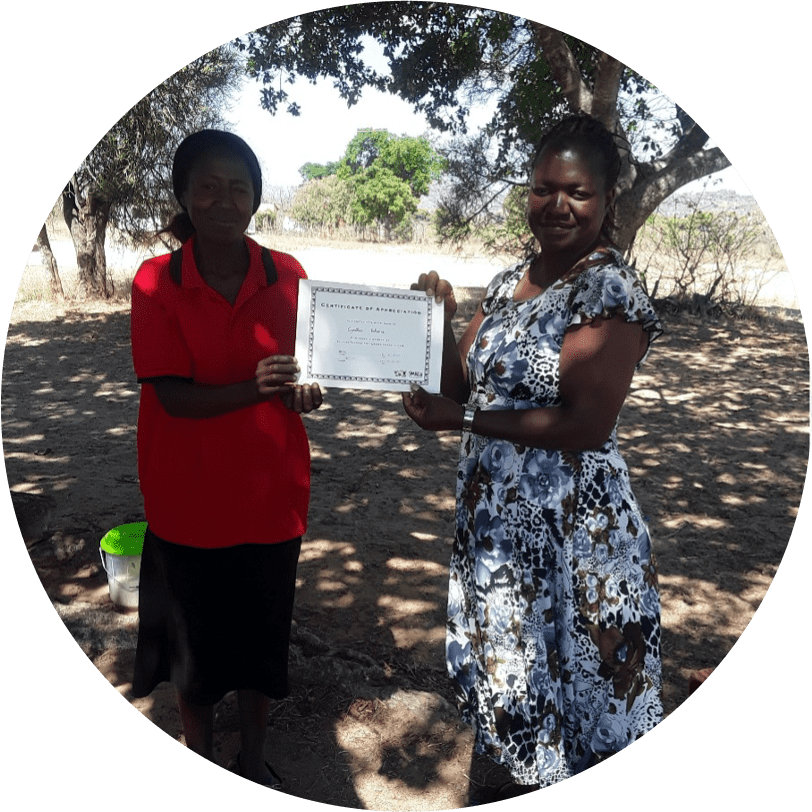
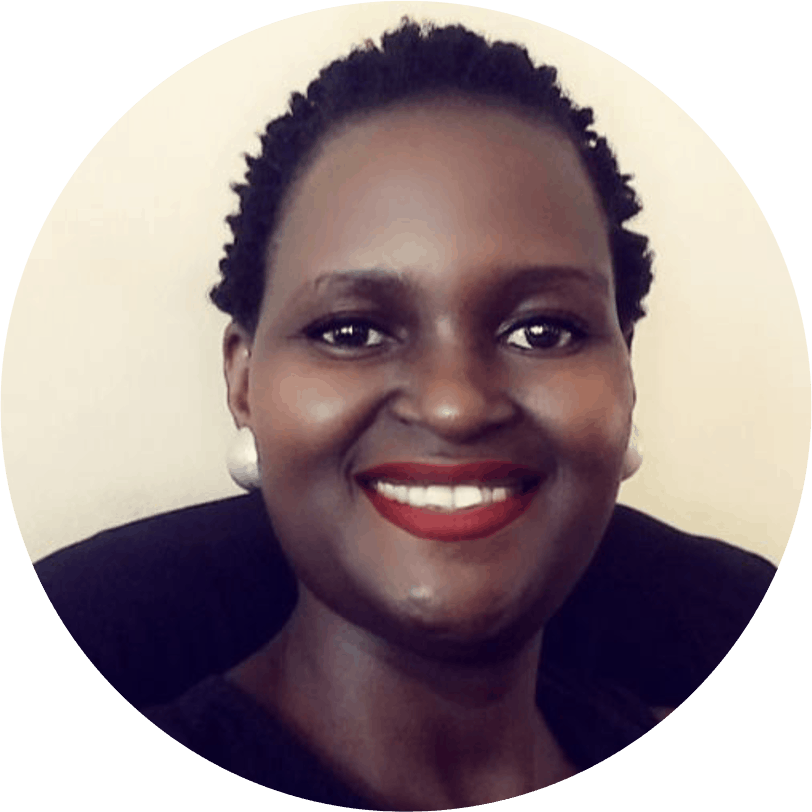
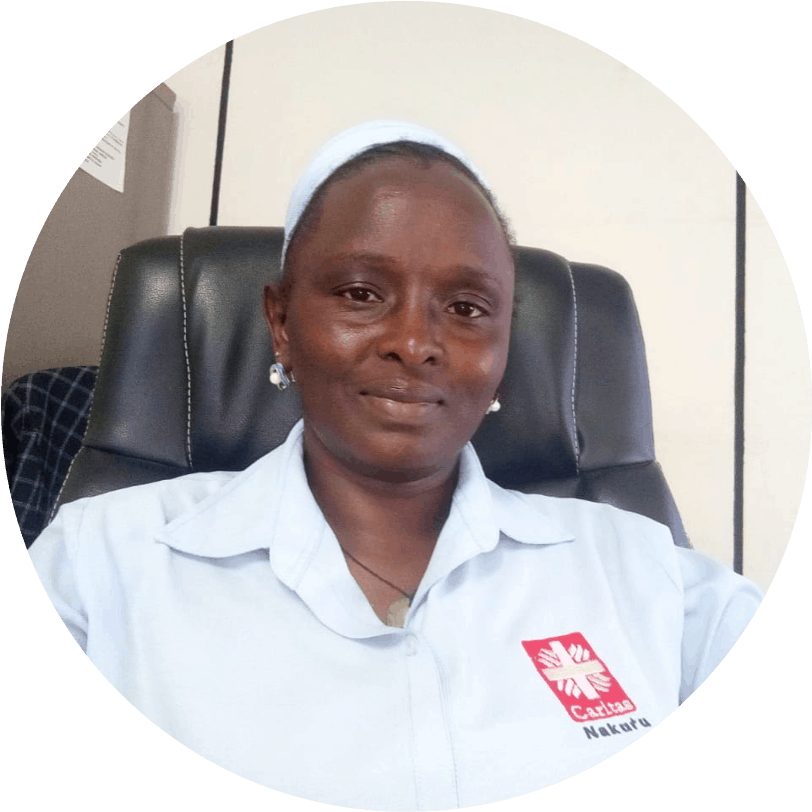
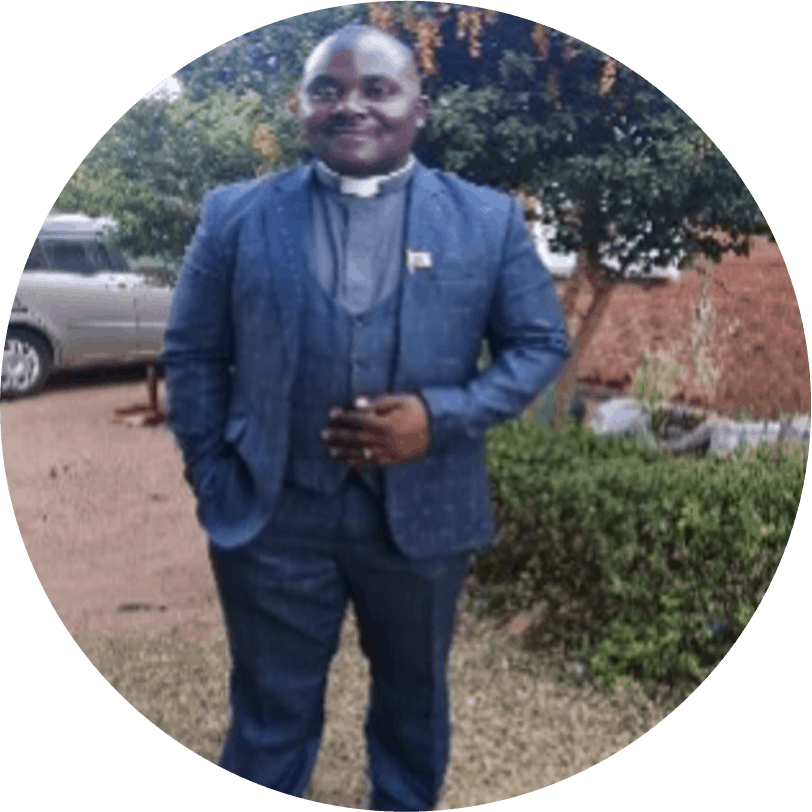
Here’s what they had to say…
1. Why is it important to empower women?
“Women cannot live with dignity and improve their lives and those of their families and communities when they are denied access to resources, knowledge and justice.” Memory
“Many women depend on their male counterparts for financial support, which sometimes puts them in a vulnerable situation. When they are empowered, this dependency can be eradicated.” Richard
“There is a need to make women see the importance of their roles in participating in education, health, the economy and society.” Mwaka and Kidawa
2. How does our work together challenge gender inequality?
“Project activities are not planned based on gender. As a result, all of the beneficiaries feel empowered to actively participate in the project without feeling discriminated against on the basis of gender.” Pauline
“Our work with WeSeeHope improves women’s financial status, breaking the cycle of women’s dependence on men. When women belong to savings groups, they are able to have quick access to money. Through the different trainings given, they are able to invest in various income generating activities. At the end of the day they too are able to cater for their children’s school fees, medical expenses and food, amongst other needs.” Naomi
“Gender inequality is rooted in power imbalances between men and women, which are fuelled by economic dependency. Through the Village Investors Programme (VIP), we help women start up income generation activities, making them less dependent on their husbands and other male counterparts. This financial independence is key in improving power relations.” Memory
3. Why is it critical to improve women’s financial equality?
“As they are the caretakers of their families, it is important to assist women in their financial equality, so as to improve the standard of living for their families.” Mwaka and Kidawa
“Financial equality gives women independence and freedom to do what they want, as opposed to depending on their husbands for provision and decision-making. This kind of freedom helps them to contribute to the family wellbeing, meaning they are able to clothe their children, educate their children, feed their children as well as strive to reach their full potential.” Naomi
“It is a means of reducing gender-based violence. Women can stay in abusive relationships because they are economically dependent on their male partners and fear that they cannot fend for themselves.” Memory
4. Why is it important for women to be involved in the decision-making process and leadership of our programmes?
“It is only by involving women at such levels of decision-making that we can bridge the gap of skewed decisions which do not, in most cases, consider the unique role women play in the organisation and success of the programmes. The maternal and nurturing roles of women should not deny them work opportunities.” Pauline
“Women making decisions is a basic foundation and important indicator of women’s empowerment.” Mwaka and Kidawa
“Any decisions that leave another gender outside may have some challenges in implementation; and leadership plays a major role in the decision-making processes in any community or institution. Involving women in decision-making and leadership in our programmes provides an equal opportunity for them to be part of whatever can affect them.” Richard
5. Why will women and girls be crucial in the recovery from the impact of COVID-19?
“Today’s women are the breadwinners and key strategists of their homes. The impact of COVID-19 has seen many of their businesses affected and, as such, reduced their ability to take care of their homes. Women and girls are important in the recovery from the impact of COVID-19 because the family livelihood depends on them – ending the cycle of poverty in their communities depends on them.” Naomi
“By engaging women and girls in any recovery programme for COVID-19, there is the assurance of success and sustainability.” Pauline
“Women and girls are especially affected by the impacts of COVID-19 particularly economic stress, which increases their risk of gender based violence, prostitution and other forms of exploitation. Therefore, women and girls are crucial in the recovery from the impact of COVID-19 as this promotes ownership of solutions, reduces their burden and takes into consideration their needs.” Memory
Thank you so much to Memory, Mwaka, Kidawa, Naomi, Pauline and Richard for their insight and to all of our in-country partners who are working with us to support gender equality across Southern and Eastern Africa.
Women are key to the longevity and sustainability of our work with vulnerable children. We are continuing to promote female leadership and ensuring that women are supported and empowered economically throughout COVID-19 and beyond.


